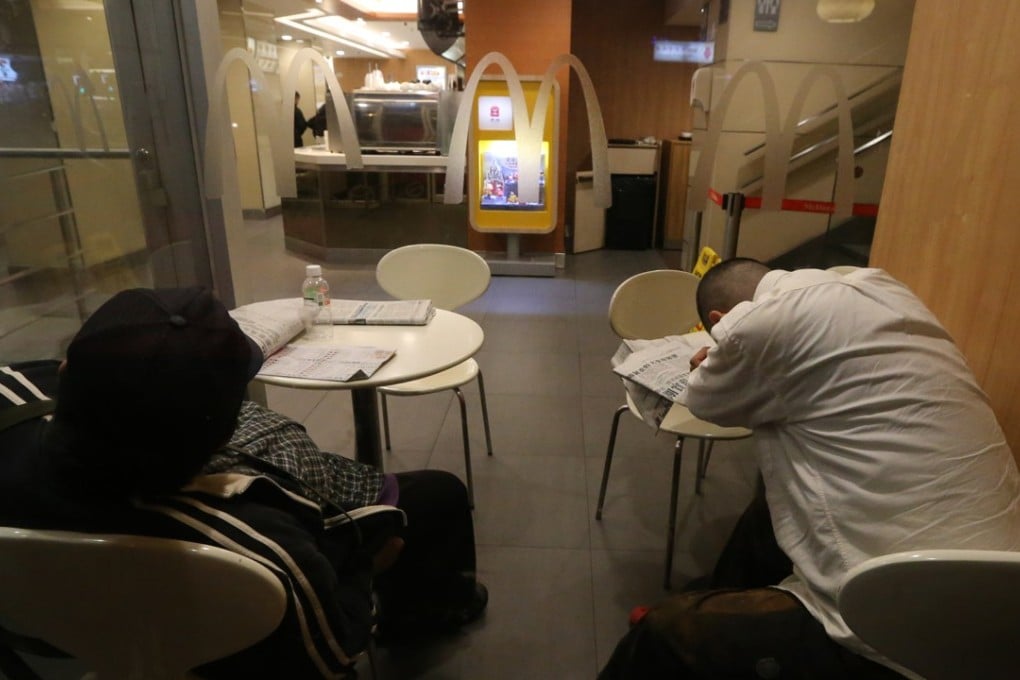Hong Kong’s McSleeper trend rises 50 per cent in three years, as NGO highlights vulnerability of women in the group
Survey findings come alongside calls for government to adapt vacant sites for social housing

The number of homeless people in Hong Kong who spend their nights in 24-hour branches of a popular fast food chain has increased by 50 per cent in three years, according to an NGO highlighting the vulnerability of women in the group.
There were 384 such people this year, compared with 256 in 2015, a study conducted by the Society for Community Organisation (SoCO) found. Called McSleepers or McRefugees, they are known for seeking overnight shelter at McDonald’s outlets around the city.
From last December to January, the group surveyed four districts in Hong Kong.
The lonely life of the McSleepers, the poor who call McDonald’s home
SoCO also conducted follow-up surveys with 116 of the 384 people, and found that 11.2 per cent – or 13 individuals – were female. Most of the women said they chose to stay overnight in the outlets because they felt safer. Other reasons included a preference for air-conditioned and clean environments.
A 48-year-old woman, who goes by the nickname “Monitor”, said she had been sleeping in McDonald’s branches in Hung Hom since 2016. She left a shelter operated by a charity group in Wan Chai after her three-month stay expired.

“I didn’t want to stay there any more,” Monitor said. “Because there were bullies, thefts, and sexual harassment among the 20 female members.
“I was harassed several times by a woman, who always asked me if I had sex with men recently. When I reported this to the shelter manager, who was a man, he said his hands were tied and he could not handle such a ‘female issue’.”